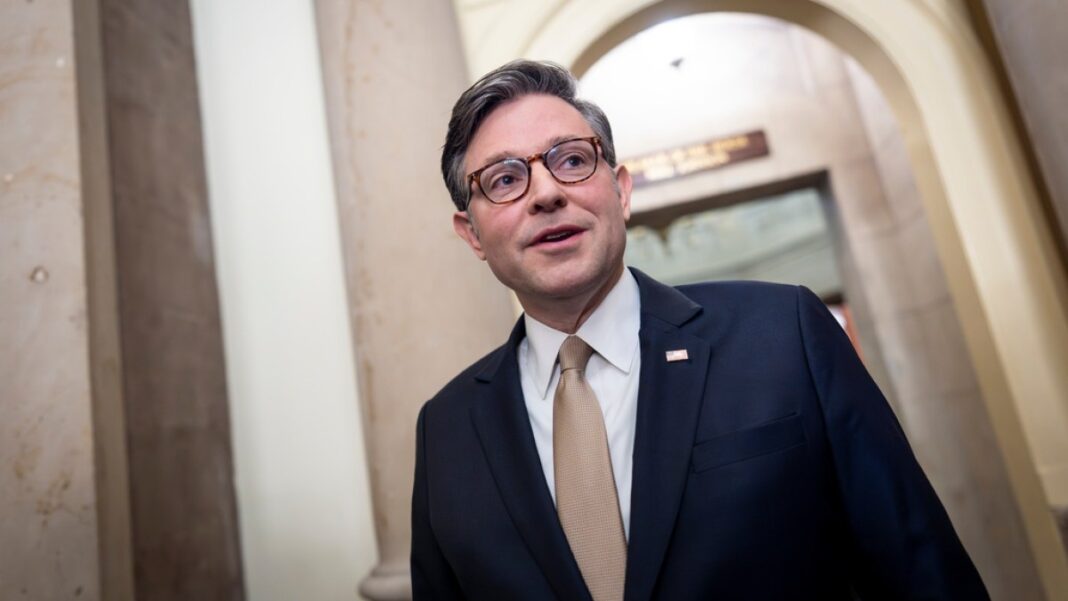House Speaker Mike Johnson Stands Firm in Healthcare Standoff
House Speaker Mike Johnson has taken a firm stance amid the ongoing government shutdown, declaring that he will not engage in negotiations with Democrats until they withdraw their healthcare-related demands. This development has significant implications as the standoff, now entering its 13th day, shows no signs of resolution.
The Current Landscape of the Shutdown
The ongoing government shutdown has sparked widespread concern, with Johnson suggesting that the nation is on course for one of the longest shutdowns in history. As the closure persists, various government operations are significantly affected, escalating tensions between the two parties in Congress.
Johnson’s Position
In a recent statement to reporters, Johnson emphasized the Republican position, stating that any discussions to end the shutdown must first address the Democratic demands surrounding healthcare subsidies. This contentious issue has become a vital point of negotiation, with Democrats advocating for extensions of subsidies tied to the Affordable Care Act, which millions rely upon for their health coverage.
The Trump Administration’s Role
The Trump administration has leveraged the shutdown as an opportunity to push forward cuts and layoffs within government agencies, citing the inability of Democrats to compromise on healthcare as justification. This strategy has drawn criticism, as many question the legality and ethical implications of such cuts, particularly when aimed at programs serving vulnerable populations.
Impact on Key Institutions
One of the most evident impacts of the shutdown is on the Smithsonian Institution, which announced the temporary closure of all 21 museums it operates, alongside research centers and the National Zoo. This institution, heavily reliant on federal funding for its operations, serves as a stark reminder of the human cost involved, as countless visitors and associated employees face uncertainty.
Public Sentiment and Accountability
Recent polling indicates that American voters are evenly blaming Democrats, Republicans, and Trump for the ongoing crisis. This sentiment highlights a pervasive frustration across party lines, as citizens grapple with the implications of the shutdown on their daily lives. Both parties’ inability to find common ground has left many feeling disillusioned with the political process.
The Stakes of Healthcare Policy
The debate over healthcare has reached a critical junction, with Democrats advocating for immediate protections for many Americans who would lose coverage under proposed Republican measures. The Republican party has countered that they are willing to address healthcare issues post-reopening, but skepticism abounds regarding their commitment to honor such promises.
The Broader Context of Government Shutdowns
While government shutdowns have become more frequent in recent years, their consequences can ripple through society, disrupting essential services and leaving many government employees in precarious financial situations. The military’s decision to use unspent funds to ensure continued pay for personnel is one such example of how agencies are attempting to navigate this complex crisis.
Preparing for an Uncertain Future
As the days of the government’s closure drag on, Vice President JD Vance has indicated that more severe cuts could be on the horizon, foreshadowing potential turmoil for both government operations and the public. Unions representing government employees have already begun mounting legal challenges to the layoffs instigated by the Trump administration, asserting that such measures may overstep legal bounds.
In a landscape fraught with tension and uncertainty, the ongoing standoff could redefine political alliances and strategies as Congress navigates the intricate interplay between healthcare policy and government funding. The future remains uncertain as both parties dig in their heels, leaving many Americans waiting and watching.



